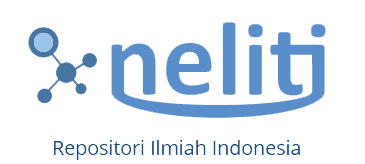Strategy in increasing Consumer Loyalty
DOI:
https://doi.org/10.35908/jeg.v8i2.2718Abstract
The purpose of this study is to understand Strategy in increasing Consumer Loyalty. A Case Study of Indonesian Unilever Products. In particular, this study analyzes the relationshipbetween CSR, WOM and Company Reputation towards consumers' loyalty specially the products of Lifebuoy, Pepsodent, and Kecap Bango. Data was collected through a survey conducted among 110 respondents.Structural equation modeling was used to test the proposed hypothesis. The research model was tested using survey data analyzed by structural equation modelingof partial least squares. the implementation of CSR strategy shows that there is a significant influence of WOM and Company reputation on consumers' loyalty. On the other hand, CSR strategy has no significant influence the consumers' loyalty. Yet as CSR was carried out through the implementation of Word of mouth (WOM) and Company Reputation there is a significant correlation between CSR and the consumers' loyalty of Lifebuoy, Pepsodent, and Kecap Bango products. The use of data that is too small for each variable resulted in limited results. As well as the limited representation of all users and consumers of Unilever products in other cities. In addition, this study did not involve other companies that also use CSR strategies as a comparison.
Keywords :Corporate Social Responsibility (CSR), Word-of-mouth (WOM), Company Reputation, Consumers Loyalty, Social Company
Downloads
Published
How to Cite
Issue
Section
License
Copyright (c) 2023 Muchammad - Ariffin

This work is licensed under a Creative Commons Attribution-ShareAlike 4.0 International License.
Authors who publish with this journal agree to the following terms:
- Authors retain copyright and grant the journal right of first publication with the work simultaneously licensed under a Creative Commons Attribution License   that allows others to share the work with an acknowledgement of the work's authorship and initial publication in this journal.
- Authors are able to enter into separate, additional contractual arrangements for the non-exclusive distribution of the journal's published version of the work (e.g., post it to an institutional repository or publish it in a book), with an acknowledgement of its initial publication in this journal.
- Authors are permitted and encouraged to post their work online (e.g., in institutional repositories or on their website) prior to and during the submission process, as it can lead to productive exchanges, as well as earlier and greater citation of published work










